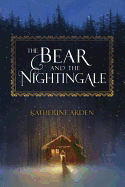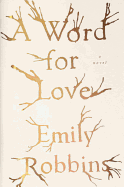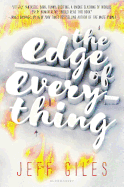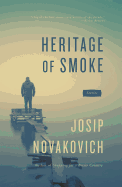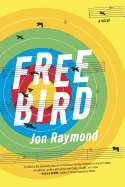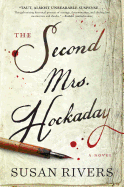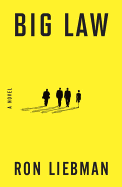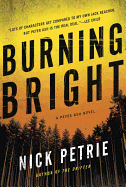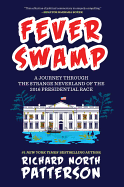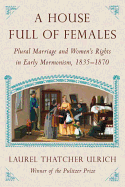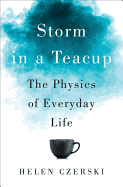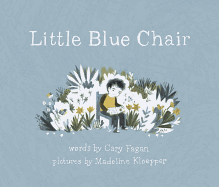Tuesday, January 31, 2017
It's time to read without pen in hand. To flop on the sofa with a book, a cat warming my shoulder and no deadlines; in other words, to retire, and to pass the galley torch to the estimable Stefanie Hargreaves.
I started at Shelf Awareness in 2005, after two years of (evidently premature) retirement, with the proviso that I'd review one mystery a month. That lasted a nanosecond. My first review was for The Highest Tide by Jim Lynch (not a mystery, except: a friend said, "Nice review; what's the book about?"). But I persevered, writing six reviews the next month, including, to my surprise, one about Duke basketball. This job has certainly expanded my horizons, for which I am grateful. (It introduced me to the marvelous Brian Doyle, for instance, and savannah termites. And baseball haiku.) I spread the work out in 2007 by hiring four reviewers. In 2011, I added some 30 more reviewers when we launched Shelf Awareness for Readers.
 I've reviewed hundreds of books, interviewed wonderful authors, written myriad columns, edited thousands of words and worked with wonderful people. The fabulous Jenn Risko and John Mutter, of course. My co-conspirator Dave Wheeler. They and my other co-workers have given me some of the best years of my book life. Not to mention our ace reviewers, and the publicists who labor tirelessly for their authors--their enthusiasm and patience made my job easier (and usually fun).
I've reviewed hundreds of books, interviewed wonderful authors, written myriad columns, edited thousands of words and worked with wonderful people. The fabulous Jenn Risko and John Mutter, of course. My co-conspirator Dave Wheeler. They and my other co-workers have given me some of the best years of my book life. Not to mention our ace reviewers, and the publicists who labor tirelessly for their authors--their enthusiasm and patience made my job easier (and usually fun).
But... I can't leave completely; instead, I'm circling back to the beginning: I'll be writing reviews for the Shelf. I will be reading with pen in hand. Sometimes.
The Bear and the Nightingale
by Katherine Arden
Newcomer Katherine Arden brings the grit and grandeur of Russian folklore to life in a sparkling 14th-century fantasy. Arden spent time in Moscow studying Russian, and her devotion to research shows in an immersive story that leans heavily upon the social structure and religious tensions of the period.
Pyotr Vladimirovich, a landed lord in the North, loses his wife, Marina, when she dies giving birth to their fifth child, Vasilisa. The infant, called Vasya, grows into an untamable girl who speaks with horses and sees spirits, from common house dwellers like the domovoi to tricky and dangerous forest denizens like the rusalka. These powers are part of her inheritance from her mother's mysterious family, and the frost-demon Morozko has noticed her. When cosmopolitan priest Konstantin is exiled to their rural holding, his disdain for the old pagan customs causes an imbalance in the magical ecosystem and frees a long-trapped evil. Vasya's bravery and growing friendship with Morozko may be all that stands between her family and friends and certain destruction.
Arden's earthy and vibrant homage to folklore reminds us that the modern fantasy genre has its roots in the ancient soil of fairy tales, watered with magic and blood. Spirited, capable Vasya's refusal to play by anyone's rules brings light and fun to an oppressively dark and wintry atmosphere. First in a projected trilogy, The Bear and the Nightingale is sure to build a legion of fans eager for any answers its sequel will reveal. --Jaclyn Fulwood, blogger at Infinite Reads
Discover: A lively girl speaks to spirits in the first volume of a fantasy series, set in medieval Russia.
A Word for Love
by Emily Robbins
Bea, an American studying Arabic, has traveled to Syria as the country is slowly drifting toward civil war, to view a certain sacred text in its original language. The text, which tells the story of the lovers Leila and Qais, makes use of the famed 99 words for love in Arabic. Bea is impatient to see the text with her own eyes, but while she waits (practicing her Arabic and requesting the text at the National Library again and again), she bears witness to a different, real-life love story. The relationship between Nisrine, her host family's Indonesian maid, and Adel, a young policeman who catches first Bea's attention and then Nisrine's, will have ramifications for everyone involved, and will alter Bea's perspective on her work, her host country and the nature of love. Emily Robbins weaves a luminous, heartbreaking narrative in her debut novel, A Word for Love.
Bea watches the slow growth of the love between Nisrine and Adel: brief conversations, scraps of poetry, the "language that develops in love." Lonely, yet comforted by her friendship with Nisrine and her role in the family, Bea looks for ways to "grow [her] heart; that is, to feel more, and to find more things to love." While Bea does find more things (and people) to love, it inevitably causes her pain.
A lyrical, bittersweet story that raises more questions than it answers, Robbins's debut explores the gaps in translation (both linguistic and cultural), the problems of divided loyalties, and many words for love. --Katie Noah Gibson, blogger at Cakes, Tea and Dreams
Discover: A luminous, bittersweet novel about an American student who becomes entangled in the lives of her Syrian host family.
Heritage of Smoke
by Josip Novakovich
The title of Josip Novakovich's collection Heritage of Smoke is fitting. Its 16 stories swirl around in the head like smoke, pungent and wondrous, leaving a dizzy impression of the mutability and evanescence of all things.
Novakovich (Infidelities) has emerged as one of the most uncompromising short fiction writers of his generation. A Croatian expatiate who resides in Canada, Novakovich routinely delves into the often violent clashes of different cultures and ethnicities. Several stories in Heritage of Smoke explore the Yugoslav wars and their horrific legacy of ethnic cleansing and genocide. A gleeful contrarian, however, Novakovich breaks from the strictures of social realism to conjure stories full of ghosts, bizarre histories, moral paradoxes and deadpan irony. Religious themes of redemption and resurrection abound; such aspirational ideas work through various characters, though not always toward pleasant ends. Novakovich seems to savor the grit and dregs left in the wake of disillusionment and violence. His best stories, like "Dutch Treat" and "Acorns," analyze this human detritus and locate commonalities of shame and humiliation.
At its most unrestrained, Novakovich's prose turns disturbingly mythic, creating its own savage strain of magical realism. In the last story, "In the Same Boat," hunger and cannibalism bind two men in a relationship both primal and mystical: "They watched each other through a prism of blood, all the salty rainbows of the world collected in one color, rusty red." That Novakovich can find lyrical beauty in the macabre is his greatest feat. By rubbing wounds, Heritage of Smoke finds the other side of pain, luminous and transcendent. --Scott Neuffer, freelance journalist and fiction author.
Discover: Croatia-born raconteur Josip Novakovich stuns and dazzles with stories of war, loss and the ghostly vicissitudes of human identity.
Freebird
by Jonathan Raymond
For the characters in Jon Raymond's third novel, Freebird, decisions are difficult to come by, but when they're made, it's in a flash, regardless of forethought. The novel revolves around the Singers, a modern Jewish family in Los Angeles. "They were Californians above all else," untethered by tradition and the certainty it affords.
Anne Singer, a single mom working in government, is approached by a charismatic entrepreneur for help developing a plan to buy up the city's wastewater. While handwringing over the ethics of this, she contends with her aging father, Sam, a laconic Holocaust survivor, and her slacker son, Aaron, who wishes that "fate might intervene and decide his future for him without any conflict or choice or rejections on his part at all." Slipping through the cracks is Anne's brother Ben, a Navy SEAL alone in the desert, dogged by PTSD and an instinct for action. The Singers pursue their own private needs to conclusions that are funny and devastating. Even Anne, who prides herself on being savvy, ultimately succumbs to life's irrational forces.
Raymond (The Half-Life), who has also written for film and TV, rotates among characters, zipping through their stories in clear prose and a casual tone that adds incisiveness to the satire, but which occasionally robs more fraught scenes of their emotional heft. The finale feels attenuated, laden with references to songs and lyrics. That's forgivable, though. Freebird is ultimately a binge-worthy novel, lightly satirical and compulsively readable. --Zak Nelson, writer and bookseller
Discover: Family members who have separate notions of reality make half-baked decisions with tragic consequences.
The Second Mrs. Hockaday
by Susan Rivers
"I do not believe to this day that Placidia Fincher Hockaday murdered her own child and buried it on Holland Creek," a witness says. Based on a true story, this gripping debut novel by Susan River unravels the mystery of what happened to a teenage bride left for two years to manage her husband's South Carolina farm while he fought for the Confederacy. The Second Mrs. Hockaday begins in 1863, but it isn't until her son discovers her journal in 1892 that the truth comes to light.
The first third of the book consists of letters from 1865 between the jailed Placidia and her cousin. These offer rich details about her deep love for widower Gryffth Hockaday and his infant son, her brutal life on the isolated farm--everything except her alleged crime. She even admits to bearing a child during her husband's absence. When Gryffth returns, gossiping neighbors disclose the baby's birth--and death--before he gets home, and when Placidia refuses to explain, he brings charges against her. Placidia is likable, resilient, stoic and fair; Rivers maintains the novel's tension in the book's first half and doesn't reveal Mrs. Hockaday's fate after her arrest. It is, however, reassuring that the second section, set in 1892, is the story of Placidia and Gryffth's children--apparently the truth freed rather than confined her.
In a complex, credible plot twist, Achilles Fincher Hockaday discovers a leather-bound copy of David Copperfield among his late mother's belongings. Faded writing on the back of its illustrations reveals her full story. Achilles, his siblings and characters from Placidia's era now enjoy a peaceful, refined world, and it's a fitting coda to the story of a woman buffeted by wartime horrors. --Cheryl Krocker McKeon, manager, Book Passage, San Francisco
Discover: A Confederate officer's bride who manages the farm while he is at war is later arrested for infanticide.
Mystery & Thriller
Big Law
by Ron Liebman
Former attorney Ron Liebman's third novel (after Jersey Law) delves into the dirty dealings of giant American law firms. Big Law introduces Carney Blake, a junior partner at the behemoth New York firm Dunn & Sullivan.
Dunn & Sullivan typically defends corporations, many of which have questionable business practices, but Carl Smith, the firm's chairman, has asked Carney to take the lead on a plaintiff's class-action lawsuit. Flattered that he's been given this level of responsibility as a young partner, he sets aside his misgivings about the peculiarity of the case and gets to work. Carney may be young, but he's also smart and determined. He has the qualities that his highly respected and experienced opposing counsel recommends:
"...lawyering was made up of a mix of ingredients. Like a potent drink. Understanding the law, knowing how to use the law, how to argue it when necessary--all were part of the mix. So were assertiveness, aggression, creativity. Put all that into a cocktail shaker. Add a splash of deviousness. Shake and pour."
So when Smith's behavior toward Carney and the case starts raising red flags and the defendant serves Carney with a personal lawsuit, he makes it his mission to uncover the truth, if for no other reason than to save his career.
Big Law should appeal to fans of John Grisham and Michael Connelly's legal thrillers. It's smart and complex, with authentically flawed characters. Liebman develops a convincing plot, pulling his readers into the legal world without bogging down the momentum with a lot of industry jargon. The verdict is in on Big Law, and it's a winner. --Jen Forbus, freelancer
Discover: An ambitious young lawyer becomes the pawn in a corrupt class-action lawsuit and must expose the dirty secrets behind it before his career is destroyed.
Burning Bright
by Nick Petrie
Peter Ash hasn't slept inside anything but a tent or his truck for two years. Suffering from PTSD, he roams the Northern California redwoods contemplating a crime that could lock him away and force him to "get over" his disorder-related claustrophobia. Instead, Ash stumbles upon investigative journalist June Cassidy secreting herself among the trees.
June is also trying to outrun forces beyond her control. Unlike Ash, she's not sure what or who they are, only that they appear connected to her mother, a tenured Stanford professor recently killed in a hit-and-run.
It becomes evident June is being hunted, and in short order she and Ash team up in a dangerous race to figure out what June has or knows before it gets her killed. June's investigative prowess coupled with Ash's resourcefulness make them a compelling team, bound to spark friendly conflict and a connection they each need.
In Burning Bright--the second Peter Ash novel, following his first-class debut, The Drifter--Nick Petrie shows no signs of letting up on the action or character development. While the suspense genre has no shortage of veterans suffering from PTSD, Ash feels different and true, his symptoms neither overblown nor imparting superhuman skills, but nevertheless unsettling.
The investigation is fraught with mercenary violence and heady computer technology, but the characters' talents always feel righteously earned. Backed by a cadre of appealing secondary characters, June and Ash's chase leads to a place they never expected and a satisfying conclusion worthy of the risks. --Lauren O'Brien of Malcolm Avenue Review
Discover: A troubled military veteran comes to the aid of a journalist on the run, only to be caught up in an action-packed race to a technology worth killing for.
Political Science
Fever Swamp: A Journey Through the Strange Neverland of the 2016 Presidential Race
by Richard North Patterson
Richard North Patterson's 2007 thriller The Race presented a U.S. presidential election steeped in drama. Had that novel included the actual events of the 2016 United States presidential election, readers would likely have found it too far fetched to believe. Now, 10 years after the novel, Fever Swamp considers the unprecedented contest last year for the highest political office of the most powerful country in the world.
Throughout the 2016 race, Patterson published his essays online at the Huffington Post. With the combined experience of his years as an attorney and his copious research for many politically themed novels, Patterson is able to offer intelligent, perceptive commentary on what he terms the fever swamp--two years of political contagion "where lies blossomed, anger thrived, conspiracy theories mushroomed, and reason went to die."
Fever Swamp is the complete collection of Patterson's columns, supplemented with margin notes and section introductions that evaluate his thoughts and predictions. Patterson is unapologetically liberal and supports his words with evidence from reliable research, including data and historical precedents. Armed with facts and an insider's knowledge, he offers witty insights, sharp rebukes and shrewd analysis. Patterson covers it all: candidates, their platforms, their scandals and what they mean to the states, the political parties, the Supreme Court and, of course, the citizens, from the beginning of the primaries to the startling results of November 8, 2016. Fever Swamp is a primer for future generations to avoid the spectacle better known as the election of the 45th president of the United States. --Jen Forbus, freelancer
Discover: A political thriller writer chronicles an American election that was stranger than fiction.
Religion
A House Full of Females: Plural Marriage and Women's Rights in Early Mormonism, 1835-1870
by Laurel Thatcher Ulrich
Harvard historian and Pulitzer-winning author Laurel Thatcher Ulrich (Tangible Things) is also the feminist and Mormon who coined the phrase "Well-behaved women seldom make history." A House Full of Females examines Mormon history from the perspective of the women who made the hard migration west, lived in plural marriages, built grassroots community organizations and achieved women's suffrage in Utah--decades before their daughters and granddaughters would be key in achieving it nationally.
Using the diaries, letters and even quilts of these women, Ulrich tells an impartial, complex story of many strong personalities who struggled to build new forms of private and community life. She writes that traditional versions of the religion's early history often leave out these women or reduce them to props and pawns; including them, however, humanizes the true story of the Mormon expansion and highlights the fundamental dependence of male preachers on the practical support of their wives and non-Mormon relatives. Plural marriage households were often a morass of dramatic emotions, "anger, ambivalence, confusion, instability and anxious acceptance." But when the federal government moved to ban polygamy and remove women's suffrage in Utah, Mormon women rose up in outraged protest, believing they had more choice and autonomy in their system than they would in the mainstream monogamous one. This expert and deeply researched history sheds new light on U.S. history in general as well as feminist and Mormon history in particular. --Sara Catterall
Discover: This is an intimate portrait of women in early Mormon history, who were strong personalities and achieved the right to vote before women in the rest of the country.
Science
Storm in a Teacup: The Physics of Everyday Life
by Helen Czerski
Similarities between such disparate items as popcorn and steam engines, ketchup and snails, cell phones and pearls, cotton towels and redwood trees are highlighted in Storm in a Teacup: The Physics of Everyday Life. Physicist Helen Czerski uses what's right in front of us to explain fundamental concepts of physics in a way that's accessible, entertaining and rooted in research.
Storm in a Teacup is a delightful read that manages to be comprehensive. Sections divided by overarching themes take on topics including gas laws, atomic theory, thermodynamics, magnetism, surface tension and other concepts that become easier to grasp through examples and humorous anecdotes. Czerski uses the classic British tea break as a motif throughout, both as a symbolic rest between topical units and as a way to review how diverse aspects of physics affect the simple cup of tea. She ties the small examples to large-scale natural systems like weather patterns and tectonic plate movement, as well as human innovations like wind turbines and space stations.
Storm in a Teacup is charming and useful--great for those who like to know how things work but didn't necessarily excel in high school science classes. Science experts will be in familiar territory, but may still enjoy how Czerski presents her material in a fresh, digestible way. Readers will benefit from gaining more insight into how our world works and the ways that humans have harnessed physics to create the kind of society that supports us today. --Richael Best, bookseller, The Elliott Bay Book Company, Seattle, Wash.
Discover: A physicist breaks down major concepts into manageable bites, helping us understand the big through the small.
Children's & Young Adult
Little Blue Chair
by Cary Fagan, illus. by Madeline Kloepper
Boo eats, sleeps, reads and plays on his favorite little blue chair. When he finally outgrows it, his mom puts it outside with a sign that says "PLEASE TAKE ME." A man in a truck picks it up, and so begins the little blue chair's journey around the world.
The man sells it to a junk shop, where a woman discovers it: "This chair will be perfect, she thought." Its next owner is a boat captain who gets it for his daughter to sit on, right next to him by the ship's wheel. Once on shore, "across the ocean," the captain puts the chair out on the beach with a sign that says "DO YOU NEED THIS?" A man with an elephant does need it, so he can give children elephant rides, which he does for years until he "wrapped it up in brown paper, stuck a lot of stamps on it and put it in the mail to his sister." The chair is perfect for her, too, for use as a bird feeder. Its travels continue.
In Canadian author Cary Fagan's (Mr. Zinger's Hat) Little Blue Chair, children may find deep comfort in the idea that something can move from place to place and still be cherished, in a different way, by each person who encounters it. Canadian debut illustrator Madeline Kloepper's childlike ink and pencil artwork is thoroughly charming, and readers will love tracking the chair all the way back to its original owner, now grown up with a daughter of his own: " 'This chair is perfect,' she said." A scrumptious morsel, both nutritious and delicious. --Karin Snelson, children's & YA editor, Shelf Awareness
Discover: In this curiously satisfying picture book, a little blue chair changes hands all around the world and is perfect for each of its new owners.
The Edge of Everything
by Jeff Giles
In just a few months, 17-year-old Zoe Bissell's life has gone to hell--literally. Her beloved but "infuriatingly unreliable" father was killed in a caving accident, her grandparent-like neighbors are missing from their mountain cabin, and now her ridiculous eight-year-old brother, Jonah, has disappeared into the 15-below Montana blizzard with their dogs Spock and Uhura.
Miraculously, she finds Jonah in the snow and manages to carry him to her neighbors' cabin, staggering "like a drunken yeti." Suddenly they are face to leering face with the cruel, violent criminal "Stan the Man" who is inexplicably determined to drown their dogs in the nearby frozen lake. Magically, Spock and Uhura are saved by a beautiful, enigmatic stranger in a shimmering long blue coat from hell's Lowlands, a man Zoe later calls X ("for an unknown variable"). But just as X is about to drown the despicable Stan, Zoe stops him. Her actions--and X's--set in motion an epic supernatural drama that, for better or worse, will upend the lives of everyone involved.
Fantasy, romance, horror and sci-fi blend deliciously in Jeff Giles's gripping young adult series debut. Zoe is a thoroughly contemporary protagonist whose sardonic humor takes on an especially surreal quality when she's talking with people who live--or lived--in different centuries. X's exquisitely romantic sentiments--"If I do not return... it is only because not one but two worlds conspired to stop me"--are balanced by Zoe's wry matter-of-factness: "Well that's a little over-the-top." A gorgeous, unearthly ride. --Emilie Coulter, freelance writer and editor
Discover: After her father's suspicious death, 17-year-old Zoe finds "star-crossed supernatural love" with a bounty hunter from hell in this witty, suspenseful series launch.


